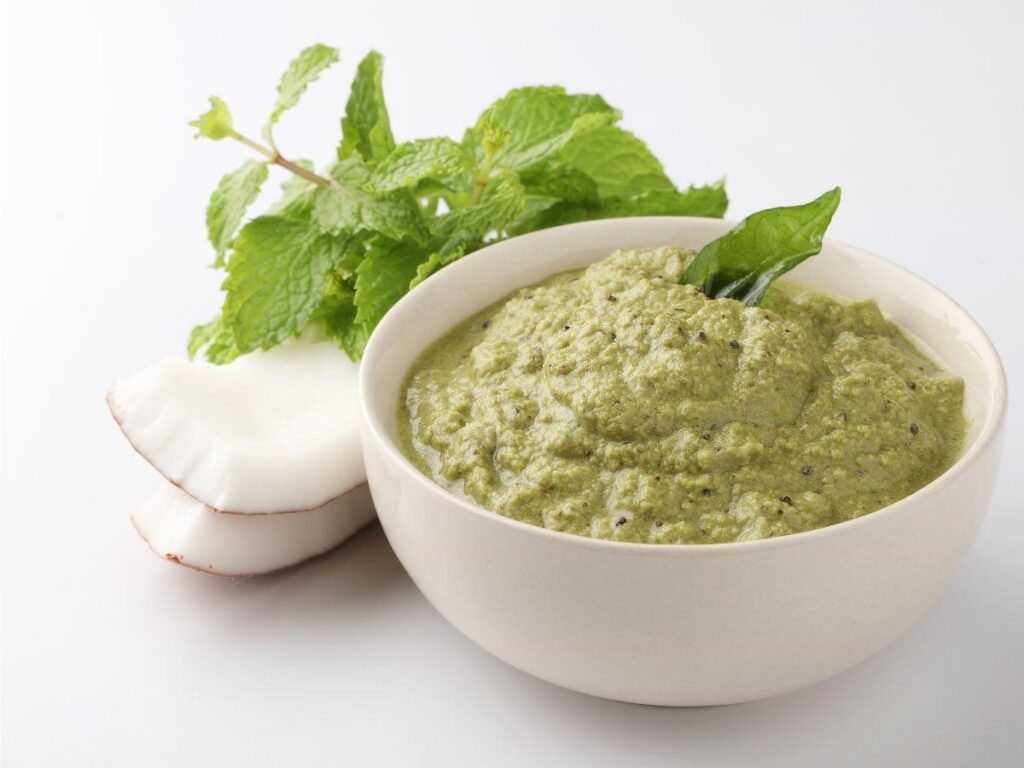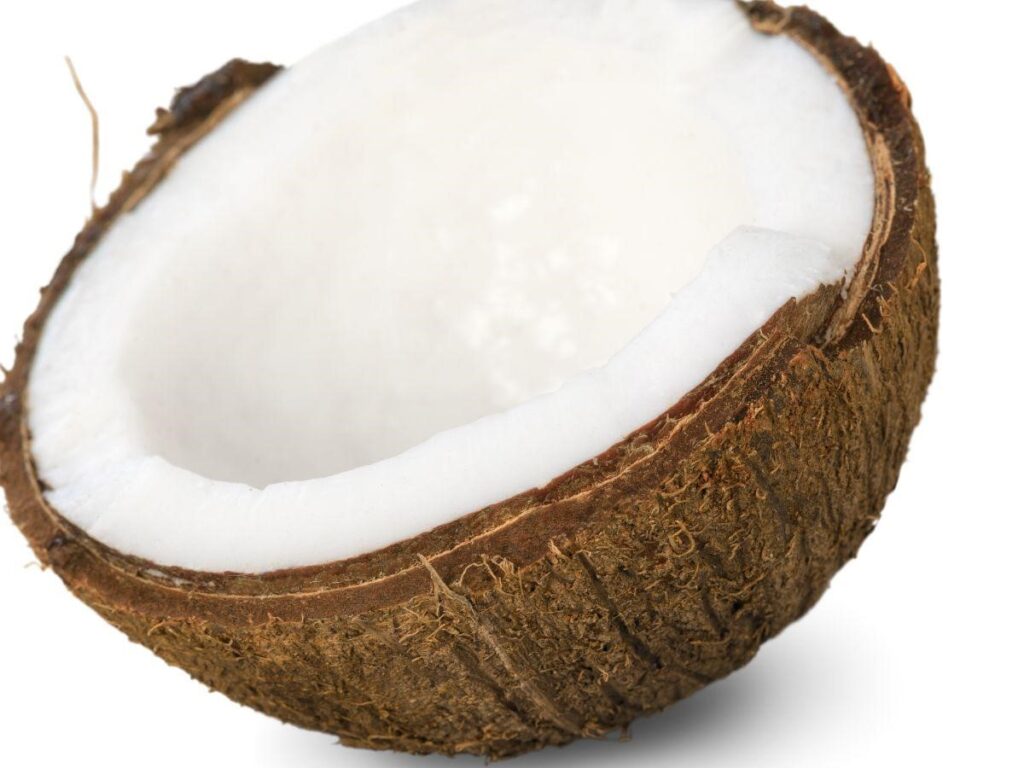Coconut yogurt is a creamy and delightful alternative to dairy-based yogurt. Because it is made with mature coconut flesh, it has a distinctly tropical flavor. But can dogs have coconut yogurt?
Yes, dogs can eat coconut yogurt, it is good for dogs to consume in moderation.
Unlike regular yogurt made from cow’s milk, coconut yogurt is lactose-free and will not upset a lactose-intolerant dog’s stomach.
In addition to being a pleasant treat, coconut yogurt has various health benefits for dogs.
It contains medium-chain triglycerides (MCTs), a form of healthy fat that can help with energy levels and metabolism.
MCTs may also have antibacterial and antiviral activities, which can assist in boosting the immune system and defend against infections.
In moderation, coconut yogurt can be a safe dog treat. It’s tropical taste and health advantages make it a welcome addition to their diet.
So, go ahead and give your canine partner a scoop of coconut yogurt and let them experience a taste of heaven.
Benefits of Coconut Yogurt for Dogs

When consumed in moderation, coconut yogurt has the potential to provide various benefits to dogs. Here are some of the advantages of coconut yogurt for dogs:
Digestive Health:
- Coconut yogurt can help dogs’ digestion. It contains probiotics, beneficial microorganisms that help maintain a healthy gut flora.
- These probiotics can help improve digestion, alleviate gastrointestinal symptoms, and increase nutritional absorption.
Lactose-Free Alternative:
- Many dogs are lactose intolerant, which means they lack the enzyme required to digest lactose found in dairy products.
- Coconut yogurt is a lactose-free substitute that allows dogs with lactose intolerance to enjoy a creamy delight without risking stomach distress.
Medium-Chain Triglycerides (MCTs):
- Coconut yogurt contains a high concentration of medium-chain triglycerides, a type of healthful fat. MCTs are easily absorbed and metabolized, giving dogs a rapid energy supply.
- They also help you maintain a healthy weight and a healthy metabolism.
Support for the Immune System:
- Coconut yogurt includes lauric acid, a medium-chain fatty acid with antibacterial and antiviral effects.
- It can shield your dog’s immune system from dangerous germs, viruses, and other infections.
Nutritional Content:
- Coconut yogurt is a good source of critical elements such as vitamins, minerals, and antioxidants.
- These nutrients help your dog’s overall health and well-being, including the quality of its coat and skin.
It’s crucial to note that while coconut yogurt may have some benefits, each dog will react differently.
Introducing new foods gradually and observing your dog’s reaction is generally best.
If you have any worries or queries regarding introducing coconut yogurt into your dog’s diet, it is best to contact a veterinarian.
What Kind of Yogurt Can Dogs Eat?
Dogs can consume plain, unsweetened yogurt free of additives and artificial sweeteners. Choosing yogurt without added sweets, flavors, or artificial components is better.
Greek yogurt and normal yogurt are both safe for dogs as long as they are plain and contain no added substances that could be harmful to them.
When purchasing yogurt for your dog, carefully read the label to verify it does not contain xylitol, an artificial sweetener hazardous to dogs.
Also, avoid yogurts with added sugars or artificial flavors, as these can irritate your dog’s stomach and make you gain weight.
Plain yogurt, in moderation, can be a nutritious supplement to your dog’s diet. It may contain probiotics, calcium, and protein, benefitting their digestive health and overall well-being.
However, before introducing new meals, please speak with your veterinarian to confirm they are appropriate for your dog’s needs and nutritional requirements.
What Is the Best Dairy Free Yogurt for Dogs?
When looking for a dairy-free yogurt alternative for dogs, coconut yogurt is often considered one of the best options.
Coconut yogurt is made from the flesh of mature coconuts and does not contain any dairy ingredients, making it suitable for dogs with lactose intolerance or dairy sensitivities.
Coconut yogurt provides a creamy texture and a mild, slightly sweet flavor that many dogs enjoy.
It is typically free from additives, artificial sweeteners, and excessive sugars, making it a healthier choice for your furry friend.
When purchasing coconut yogurt for your dog, select plain, unsweetened varieties without any added flavors or ingredients that may harm dogs.
It’s always a good idea to read the label and check for any potential allergens or additives that may not suit your dog.
Overall, coconut yogurt is often considered the best dairy-free yogurt option for dogs due to its taste, nutritional benefits, and the fact that it is generally well-tolerated by dogs
. As with any new food, it’s recommended to introduce it gradually and monitor your dog’s response to ensure it agrees with them.
What Happens if A Dog Eats Human Coconut Yogurt?
If dogs consume human coconut yogurt, the consequences vary based on the dog and the contents of the yogurt. Here are some examples of probable outcomes:
Digestive Upset:
- Dogs may have stomach upset after consuming human coconut yogurt, particularly if it contains unsuitable substances. It includes symptoms such as diarrhea, vomiting, gas, and bloating.
Lactose Intolerance:
- Because human coconut yogurt is created for human consumption, it may include lactose, a sugar in dairy products.
- Dogs are lactose intolerant, which means they lack the enzyme (lactase) required to digest lactose effectively.
- Lactose in human coconut yogurt can cause gastrointestinal pain and digestive upset in dogs.
Added Ingredients:
- Some human coconut yogurts may contain additives, artificial sweeteners, flavors, or other harmful elements to dogs.
- Depending on the content, many ingredients may produce bad responses or even be toxic to dogs.
Calorie Intake:
- Human coconut yogurt’s calorie content and portion sizes may differ from those acceptable for dogs.
- Dogs who ingest large amounts of human coconut yogurt regularly may acquire weight or have an imbalanced diet.
To avoid potential problems:
- To guarantee that dogs only ingest dog-specific yogurt, avoid offering them human coconut yogurt.
- Choose dog-specific coconut yogurt or prepare your own using dog-friendly recipes. If your dog accidentally consumes it, watch for signs of stomach trouble or unpleasant reactions.
- If the symptoms persist or worsen, seek help from a veterinarian.
Always feed your dog food and treats designed exclusively for their nutritional needs, and speak with a veterinarian if you have any concerns about their diet or potential exposure to human foods.
Can Dogs Eat Coconut?

Yes, in moderation, dogs may consume coconut. Fresh and dried coconut can have some health benefits for dogs. Here are a few things to remember:
Fresh Coconut Meat:
- Dogs can safely take tiny amounts of fresh coconut meat. It contains healthy fats, fiber, and some minerals.
- However, because coconut flesh is heavy in fat and calories, it should be consumed in moderation and small amounts to avoid weight gain.
Coconut Water:
- In moderation, dogs can drink coconut water. It is a natural source of hydration and may aid in electrolyte replenishment.
- However, providing raw coconut water without added sugars or flavorings is critical, as these can be hazardous to dogs.
Coconut oil:
- It is widely utilized in dog products and homemade treats. It can be included in modest amounts to a dog’s diet as a source of good fats and to promote a healthy coat and skin.
- Begin with a small amount and gradually increase it, as too much coconut oil might induce stomach discomfort or weight gain.
Allergies:
- While coconut allergies are uncommon in dogs, certain dogs may experience unpleasant responses.
- If you’re adding coconut to your dog’s diet for the first time, watch for any signs of allergic response, such as itching, redness, swelling, or gastrointestinal problems.
- If your dog experiences negative effects, stop giving coconut and speak with a veterinarian.
Introduce new foods slowly and in small amounts to see how your dog reacts. If you have any worries regarding your dog’s nutrition or specific health conditions, you should get personalized guidance from a veterinarian.
Conclusion
Finally, dogs can consume coconut yogurt in moderation as a healthy and helpful addition to their diet.
As a dairy-free option, coconut yogurt tackles lactose intolerance, which is common in dogs.
It may provide various advantages, such as improved digestion, the presence of beneficial bacteria, and the provision of necessary nutrients.
However, a few things to consider before adding coconut yogurt to your dog’s diet.
Each dog is different; some may be sensitive to or allergic to specific components.
Selecting pure, unsweetened coconut yogurt free of additives and artificial sweeteners is critical.
It’s also a good idea to introduce coconut yogurt gradually, keeping an eye out for any signs of digestive trouble or allergic responses in your dog.
While coconut yogurt is a nutritious and pleasant treat for your dog, it should not be used in place of a well-balanced diet.
A veterinarian consultation is strongly advised, especially if your dog has any pre-existing health concerns or dietary restrictions.
